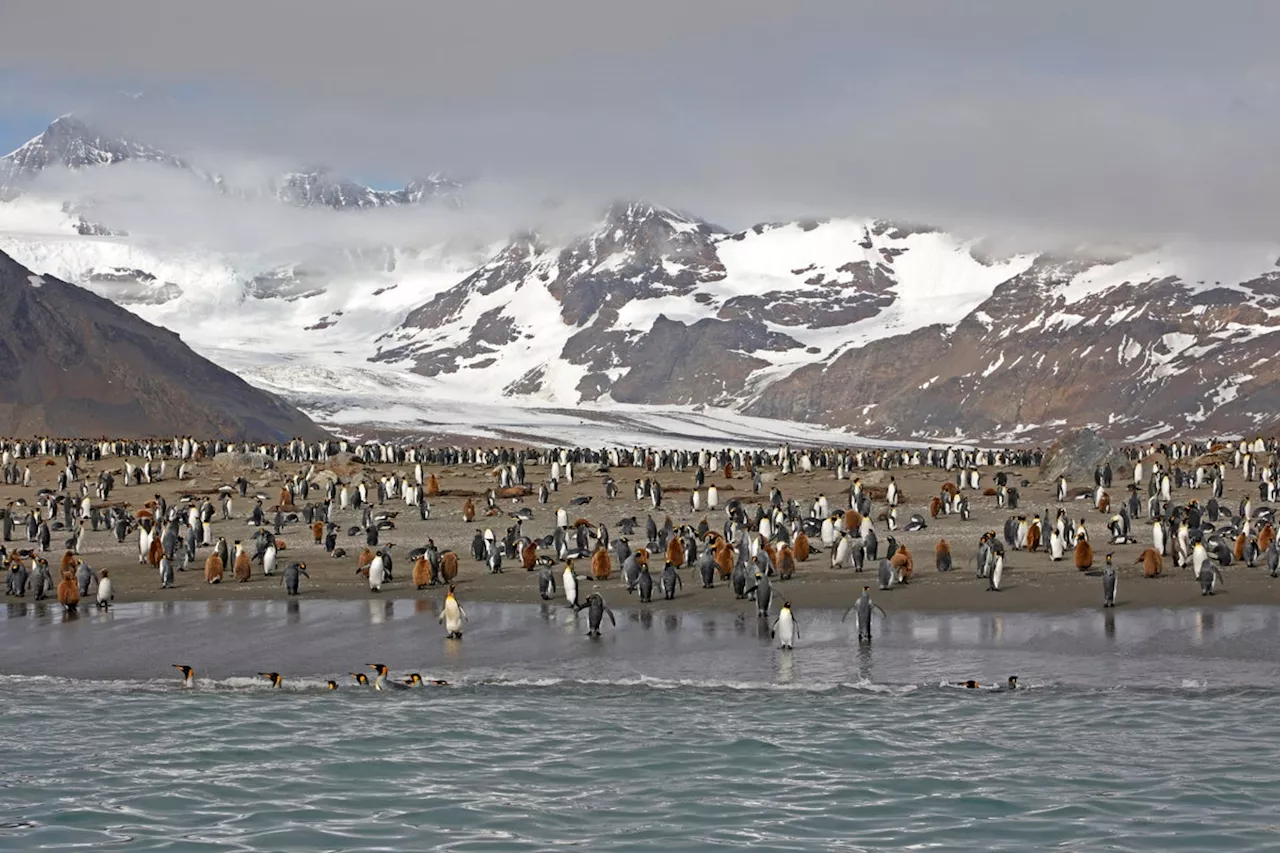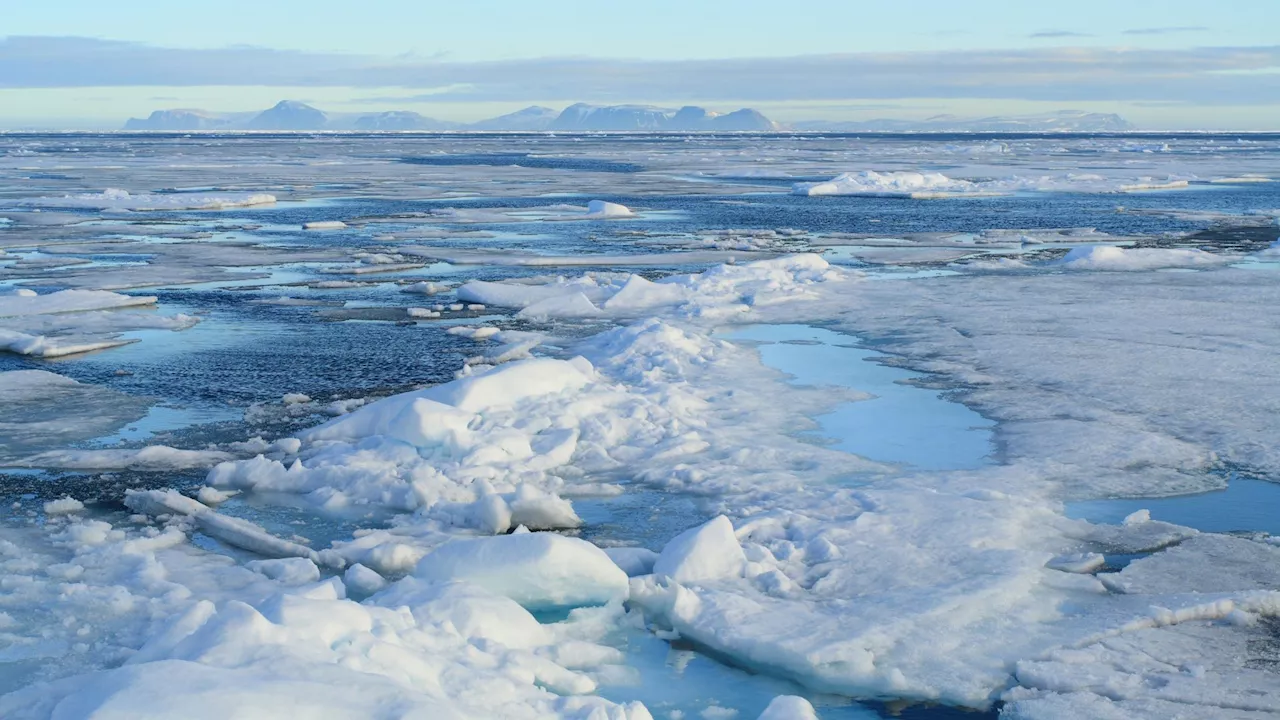Geoscientists have created a new climate record for early Antarctic ice ages. It reveals that the early Antarctic ice sheet melted more rapidly than previously thought.
Periods of sudden melting in the Antarctic ice sheet have been unearthed in a new climate record from over 20 million years ago by geoscientists led by the University of Leicester and the University of Southampton., the new study reveals how sensitive our planet's early ice ages were to the effect of the Earth's eccentric orbit around the Sun, suggesting the Antarctic ice sheet is less stable than has been assumed.
These heartbeat rhythms are caused by the shape of Earth's orbit around the Sun over the course of hundreds of thousands to millions of years. On a more eccentric orbit, the Earth's distance from the Sun will vary more throughout the year, exposing it to more heat when it is close in, and less when it is further away. The increasing heat changes Earth's climate system, causing the ice sheet to melt, sometimes rapidly.
"Past climate changes rapidly ended some of the early Antarctic ice ages and caused large amounts of melt. 'Rapidly' is on geological time scales, not as rapid as we can expect to happen during modern climate change. Professor Paul Wilson, Principal Investigator on the project at the University of Southampton, said:"It may be a surprising thing to learn that we take the pulse of the Antarctic ice sheet by doing some simple chemistry on pinhead-sized fossil shells from the deep sea floor on the other side of the world. But the really beautiful thing is that we can do it back through the geological record over tens of millions of years.
Climate Snow And Avalanches Ice Ages Early Climate Evolution Fossils Ancient DNA
United States Latest News, United States Headlines
Similar News:You can also read news stories similar to this one that we have collected from other news sources.
 UNF alumni to join Antarctic expedition team with William Shatner, Neil deGrasse Tyson, former NASA astronautsA 26-year-old Jacksonville native and University of North Florida alumni will be joining Star Trek icon William Shatner, renowned astrophysicist Neil deGrasse Tyson, Apollo astronaut Charlie Duke, and former NASA astronaut Scott Kelly to document a trip to Antarctica aiming to highlight the “vital connection between Earth’s oceans and the cosmos.
UNF alumni to join Antarctic expedition team with William Shatner, Neil deGrasse Tyson, former NASA astronautsA 26-year-old Jacksonville native and University of North Florida alumni will be joining Star Trek icon William Shatner, renowned astrophysicist Neil deGrasse Tyson, Apollo astronaut Charlie Duke, and former NASA astronaut Scott Kelly to document a trip to Antarctica aiming to highlight the “vital connection between Earth’s oceans and the cosmos.
Read more »
 Ancient Life Discovered in Ice-Covered Antarctic LakeScientists thought the lake, buried deep beneath the ice, was frozen. They were wrong.
Ancient Life Discovered in Ice-Covered Antarctic LakeScientists thought the lake, buried deep beneath the ice, was frozen. They were wrong.
Read more »
 Can Antarctic Wildlife Survive Another Deadly Bird Flu Season?Last year avian influenza brought death to the picturesque island of South Georgia off Antarctica. This season scientists hope things will be different
Can Antarctic Wildlife Survive Another Deadly Bird Flu Season?Last year avian influenza brought death to the picturesque island of South Georgia off Antarctica. This season scientists hope things will be different
Read more »
 China Opens New Antarctic Station, Targeting 'Polar Great Power' StatusPer the Australian Strategic Policy Institute, the Chinese government's strategic approach to Antarctica is part of its national security policy.
China Opens New Antarctic Station, Targeting 'Polar Great Power' StatusPer the Australian Strategic Policy Institute, the Chinese government's strategic approach to Antarctica is part of its national security policy.
Read more »
 First amber find on the Antarctic continentRoughly 90 million years ago, climatic conditions in Antarctica were suitable for resin-producing trees. Researchers have now made the southernmost discovery of amber in the world.
First amber find on the Antarctic continentRoughly 90 million years ago, climatic conditions in Antarctica were suitable for resin-producing trees. Researchers have now made the southernmost discovery of amber in the world.
Read more »
 Bubbles buried in Antarctic ice cores reveal Earth nearing crucial 1.5°C limitThe world has already warmed 1.49°C (2.6°F) compared to pre-industrial levels, according to new research using Antarctic ice cores.
Bubbles buried in Antarctic ice cores reveal Earth nearing crucial 1.5°C limitThe world has already warmed 1.49°C (2.6°F) compared to pre-industrial levels, according to new research using Antarctic ice cores.
Read more »
